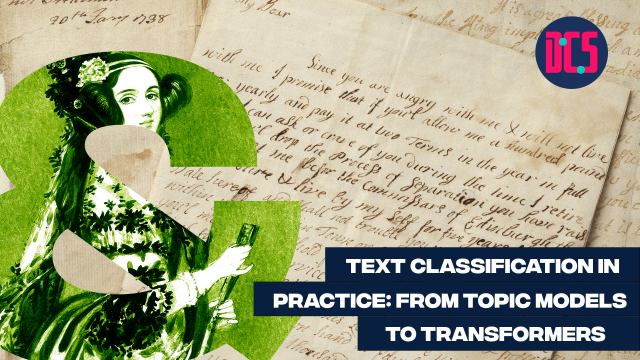An Introduction to Machine Learning

In Person
The Introduction to Machine Learning course provides a comprehensive foundation in the essential concepts and methods of machine learning. Aimed at attendees with no previous knowledge of the topic, this course is designed to demystify the core ideas of machine learning while equipping participants with practical skills. Starting with an exploration of what machine learning is and how it integrates with exploratory data analysis (EDA), participants gain an understanding of the importance of data preparation and insights in the modelling process. The course introduces classification as a key machine learning task, covering the basics of logistic regression as a starting point for understanding predictive models.
Building on this foundation, the course explores more advanced classification techniques, such as decision trees and k-nearest neighbours (k-NN), while also delving into regression methods. Along the way, participants are introduced to practical considerations in machine learning, including overfitting, evaluation metrics, and model selection. By the end of the course, learners will have a solid grasp of both the theoretical and applied aspects of machine learning, enabling them to approach real-world problems with confidence.
This is an intermediate-level course. No previous knowledge on the topic is required/expected and the trainer will cover the basics of the method but attendees are expected to be familiar with either R or Python. It will be sufficient for students to have taken the Introduction to Programming with to R and RStudio course or Introduction to Programming with Python.
In each of the two sessions, there will be practical elements with participants undertaking a range of tasks in either R or Python (knowledge of only one language is needed to undertake the course). For this, the University's Noteable service will be used to allow participants to quickly access the Python/R environments and get hands-on practice without technological constraints. For this, participants will need access to their own laptop/computer.
This course will be taught by Chris Oldnall.
After taking part in this event, you may decide that you need some further help in applying what you have learnt to your research. If so, you can book a Data Surgery meeting with one of our training fellows.
More details about Data Surgeries.
Those who have registered to take part will receive an email with full details on how to get ready for this course.
If you’re new to this training event format, or to CDCS training events in general, read more on what to expect from CDCS training. Here you will also find details of our cancellation and no-show policy, which applies to this event.
Learning Outcomes:
- Demonstrate a knowledge of relevant packages and implementations of machine learning tools in either R or Python.
- Be able to program short blocks of machine learning code in either R or Python, in order to run basic machine learning models.
- Differentiate between supervised and unsupervised machine learning, and when one is appropriate over the other.
You may be interested in these other training events:
Return to the Training Homepage to see other available events.
Room 4.35, Edinburgh Futures Institute
This room is on Level 4, in the North East side of the building.
When you enter via the level 2 East entrance on Middle Meadow Walk, the room will be on the 4th floor straight ahead.
When you enter via the level 2 North entrance on Lauriston Place underneath the clock tower, the room will be on the 4th floor to your left.
When you enter via the level 0 South entrance on Porters Walk (opposite Tribe Yoga), the room will be on the 4th floor to your right.












